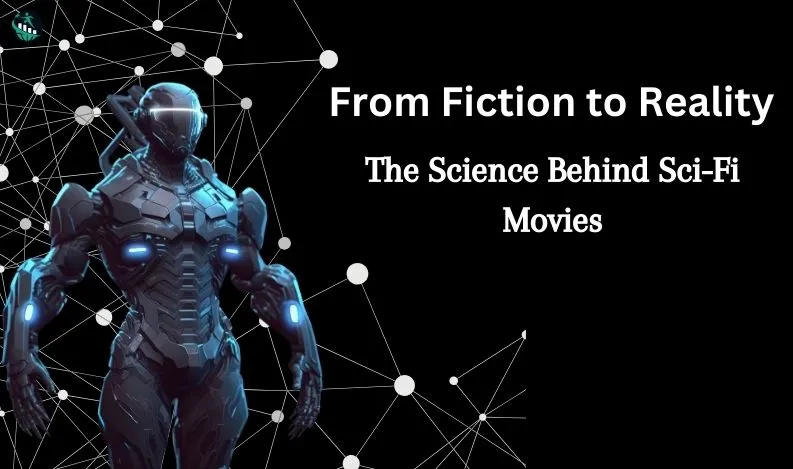
From Fiction to Reality: The Science Behind Sci-Fi Movies
Science fiction movies have long captivated audiences by transcending the boundaries of imagination, introducing us to a realm where the impossible becomes possible. These narratives, rich with speculative technology and futuristic scenarios, often challenge our understanding of science, ethics, and the trajectory of human progress. But beyond their entertainment value, many sci-fi movies have a profound connection to real scientific principles and innovations, some of which have inspired or even predicted technological advancements decades before their actual realization. This blog delves into the fascinating interplay between the fictional universes of sci-fi movies and the tangible realities of scientific discovery and innovation.
The Precursors of Reality
Historically, sci-fi has been a precursor to technological innovation. Classics like "2001: A Space Odyssey" and "Star Trek" introduced concepts like tablet computers, video calls, and voice-activated assistants long before they became integral components of our daily lives. These films, among others, have not only envisioned future technologies but have also inspired generations of scientists and engineers to turn fiction into reality.
Space Exploration: "The Final Frontier"
The exploration of space, a central theme in sci-fi cinema, has mirrored and sometimes anticipated real-world advancements in space technology. "Star Trek’s" fictional depiction of space travel and exploration has inspired countless individuals to pursue careers in astrophysics, aerospace engineering, and other related fields. The International Space Station (ISS), Mars rovers, and the recent developments in commercial space travel by companies like SpaceX and Blue Origin reflect humanity's ongoing quest to explore the cosmos, a quest that has been fueled in part by the visionary ideas presented in science fiction.
Artificial Intelligence: Friend or Foe?
Artificial Intelligence (AI) has been another staple of sci-fi narratives, with movies like "Blade Runner" and "Ex Machina" exploring the ethical and philosophical dilemmas surrounding AI. These films raise critical questions about consciousness, rights, and the potential risks of AI, which resonate with ongoing debates in the tech community about the future of AI development. Today, AI is a reality, integrated into various aspects of our lives, from personal assistants like Siri and Alexa to more complex systems driving research in medicine, climate science, and autonomous vehicles.
Medical Marvels: The Convergence of Biology and Technology
Sci-fi movies have also ventured into the realm of medical science, predicting advancements that once seemed unthinkable. "Gattaca" explored genetic engineering and the ethical quandaries it presents, a topic of great relevance today as CRISPR technology enables scientists to edit genes with precision, promising breakthroughs in treating genetic disorders. Meanwhile, "The Matrix" introduced the concept of virtual reality (VR), which is now used in therapeutic settings, offering innovative treatments for PTSD, anxiety disorders, and rehabilitation.
Environmental and Ecological Warnings
Beyond technological innovations, sci-fi movies have also served as cautionary tales about environmental degradation and ecological collapse. Films like "Interstellar" and "Wall-E" depict Earth in states of crisis, offering stark warnings about climate change, habitat destruction, and the importance of sustainable practices. These narratives echo the growing scientific consensus on the urgency of addressing environmental challenges to ensure the planet's health and security for future generations.
Conclusion: A Symbiotic Relationship
The relationship between science fiction and science fact is symbiotic and dynamic. Sci-fi movies continue to inspire scientists and innovators, while scientific advancements open new horizons for storytellers to explore. This interplay ensures that science fiction remains a fertile ground for imagining the future, prompting us to dream big while confronting the ethical, philosophical, and practical implications of our technological pursuits. As we stand on the precipice of new scientific frontiers, the visions of tomorrow rendered by science fiction offer both a source of inspiration and a cautionary perspective, reminding us of the power of human ingenuity and the need for responsible stewardship of our technological capabilities. In the dance between fiction and reality, we find the courage to envision a better world and the wisdom to tread carefully into the unknown.
Also Read:-



Recent Comments: